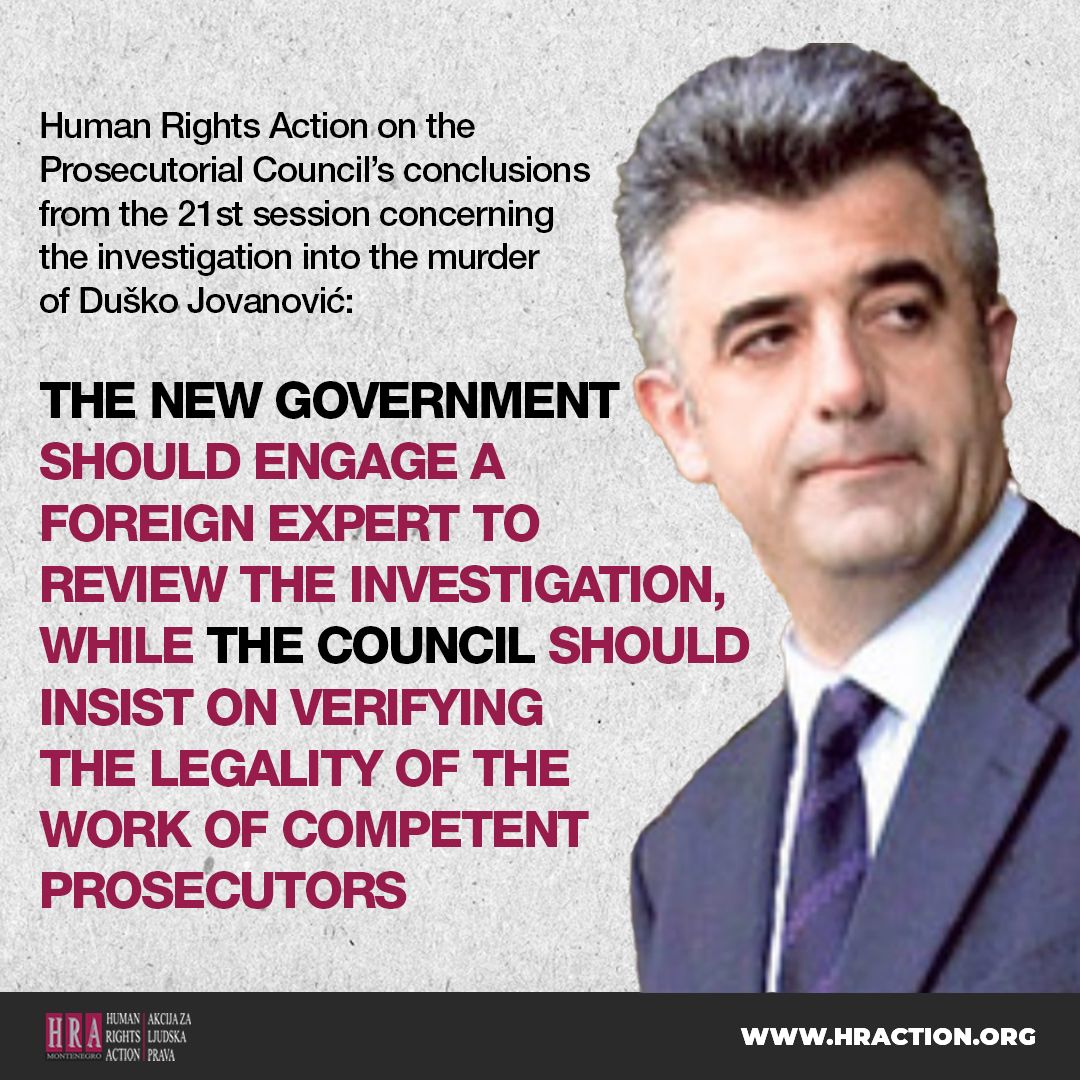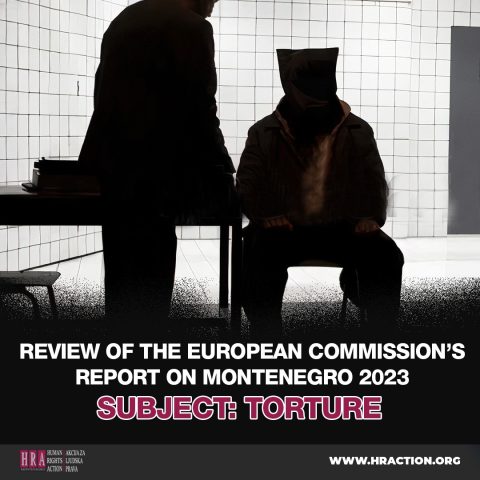
REVIEW OF THE EUROPEAN COMMISSION’S REPORT ON MONTENEGRO FOR THE YEAR 2023 – SUBJECT: JUSTICE
09/11/2023
Human Rights Action on the Prosecutorial Council’s conclusions from the 21st session concerning the investigation into the murder of Duško Jovanović: The new Government should engage a foreign expert to review the investigation, while the Council should insist on verifying the legality of the work of competent prosecutors
27/11/2023HRA is Asking the New Minister of the Interior for Zero Tolerance for Torture

The Human Rights Action (HRA) supports the European Commission’s (EC) recommendation which says that Montenegro must step up its efforts to conduct effective investigations of police torture and unlawful use of coercive measures. The same was already demanded of Montenegro by the UN Committee against Torture (CAT) in 2022 and the European Committee for the Prevention of Torture (CPT) in 2023, however without any visible results.
We regret the fact that the EC failed to criticise the promotion of impunity for torture by the former Minister of the Interior Filip Adžić and, in that way, act preventively against the new Minister Danilo Šaranović, so that he does not defy European standards as well.
The EC report incorrectly – that is, affirmatively – stated that the former Minister of the Interior “suspended four police inspectors accused of extorting statements by use of serious violence, once evidence of police torture was leaked to the media”, instead of criticising the fact that, illegally and contrary to European standards, he refused for 9 months to suspend officers who were accused of torture while simultaneously trying to convince the public of their innocence.
We expect the new Minister Šaranović to be more professional than Adžić was, to immediately get acquainted with all the earlier recommendations of international and domestic organisations for the protection of human rights, and to do what has been expected of Montenegro for decades: ensure zero tolerance for ill-treatment, especially among criminal police inspectors (CPT on Montenegro, 2017).
Unlike the previous ones, the new Minister of the Interior must show that he understands that the rule of law implies absolute prohibition of torture. He must, first of all, stop the extortion of statements by use of severe violence, by advocating sanctions for everyone in the Police Directorate who participated in torture by ordering it, applying it or covering it up. By doing so, he will be supporting all the police officers who do their work legally and in the general interest.
The new Supreme State Prosecutor must also be a person who will instruct state prosecutors not to investigate and prosecute only the immediate perpetrators of torture, but their superiors as well, in cases where a repeating pattern is evident (CPT, 2017), where statements are coerced by the same methods of beating, use of electric shocks and suffocation with plastic bags, which is something that everyone was able to see by looking at the photos of police torture, which – thanks to the decoding of the SKY application – were published in March 2023. Only such a decisive and impartial approach can ensure, on the one hand, confidence in the ability of institutions to ensure the rule of law, and on the other, the responsibility of civil servants for committed crimes and the prevention of their repetition in the future.
The HRA has timely informed the EU Delegation about 23 cases of coercion of statements from the period 2020-2021. To date, indictments have been filed only in two such cases, and only against immediate perpetrators. All the other cases are still in the pre-investigation phase (more than three years!!), which shows that state prosecutors are not willing or able to conduct effective investigations. Also, despite the repetition of the same pattern of ill-treatment in all these cases, none of the superior officers who led police operations against the injured parties are even close to being held accountable, despite the fact that the CPT demanded that Montenegro hold them accountable for such conduct back in 2017.
The tolerance of impunity for torture discourages the victims and encourages the perpetrators of these crimes, both those who have committed them in the past and those who might commit them in the future. This creates serious consequences for justice, the rule of law and citizens’ trust in state institutions.







 English
English